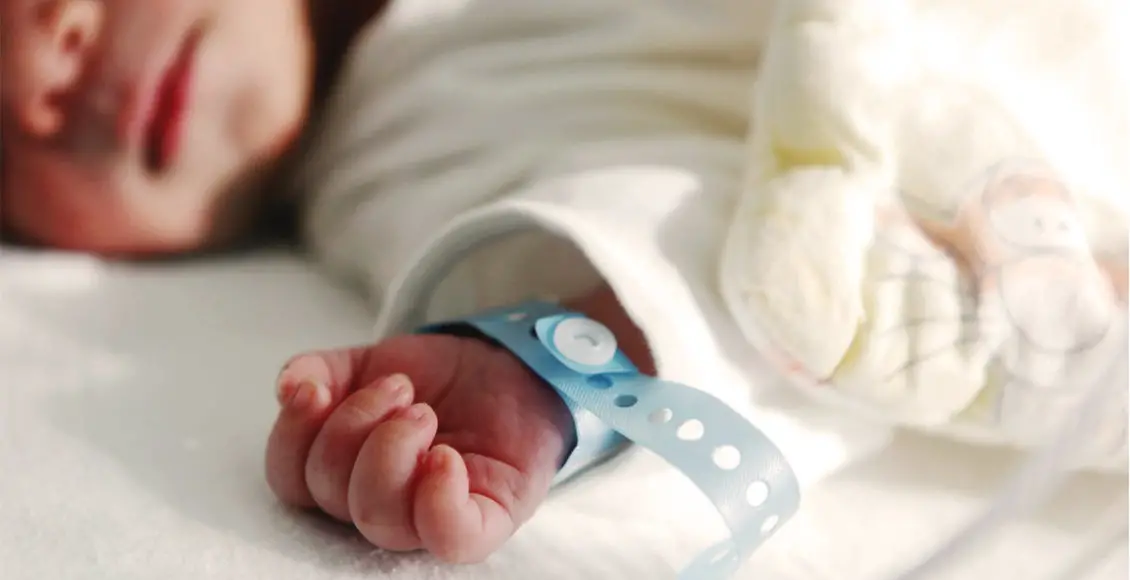Recent research has explored the issue of whether or not developing autism and ADHD could be more likely in babies born with a Caesarean section.
The study, involving scientists from the Karolinska Institute in Sweden, revolves around the examination of 61 studies and 20.6 million childbirths. Consequently, it has concluded that C-section babies have a 33 percent increased chance to develop autism and are 17 percent more likely to develop ADHD (attention deficit hyperactivity disorder).
However, there is a degree of scientific disagreement at hand in regards to whether or not the birth is relevant to the disorders, or if they both are the result of other, more deep-seated issues.
There are a couple of key arguments in support of the aforementioned paper:
- Having a C-section removes the baby’s opportunity to be exposed to specific bacteria in the vaginal canal, which could result in an underdeveloped immune system.
- Moreover, not experiencing the ‘natural stress response’ from natural childbirth has the potential to affect the child’s brain and sensory development.
Moreover, researchers explore the issue of why the risks could potentially be at a higher rate after a planned or emergency Cesarean section.
Possible answers to this question are potentially hidden in factors such as the older age of the mother, rising obesity levels, and the risk of premature birth. All of these add to the higher risk of possible development of neurodevelopmental disorders. Furthermore, it could be argued that exposure to antibiotics after the Cesarean birth might also be an influential factor in this regard.
Other professionals in the area, on the other hand, have stated that there is ‘sufficient’ evidence that C-sections are not directly linked to both neurodevelopmental disorders.
Moreover, they possess the stance that C-sections are useful towards battling other underlying factors that could be associated with autism.
The research team, however, has emphasized that evidencing a correlation between the Cesarean section and brain underdevelopment would perspectively lead to the decrease of unnecessary C-sections.
They have, therefore, argued:
‘Public health concerns have been raised because… unnecessary cesarean deliveries may be performed in [high-income countries].’
Certainly, there is a rise in Cesarean sections in countries such as Great Britain, with numbers rising from 19.7 (in 2000) to 26.2 percent. Consequently, the UK has one of the highest rates of C-sections in Western Europe and it is estimated that about 1 percent of their population is on the autism spectrum.
To add to their previous statement, the scientific research team also adds:
‘Despite being a life-saving procedure in the presence of complications, no evidence, to our knowledge, indicates that cesarean delivery, if not [done for medical reasons] is beneficial for the offspring.’
Criticism of the abovementioned research is present within the scientific community which is of the opinion that the discoveries are “significantly flawed”, as the analysis has included studies with exceptionally high rates of autism.
Professor Andrew Shennan, Professor of Obstetrics at Kings College London, has made it clear that:
“The need for caesarean is often caused by problems that could influence brain function, such as a poorly functioning placenta. It is highly unlikely the caesarean delivery itself is causal in these mental health conditions, from our current understanding of brain physiology and the effects of caesarean.”
He also adds the important message that:
“Women should not be alarmed by the need for a caesarean which is often performed to reduce risk to their baby.”
In addition, Dr. Pat O’Brien, Consultant Obstetrician and Spokesperson for the Royal College of Obstetricians and Gynaecologists, says:
“This systematic review and meta-analysis shows an association between caesarean birth and autism and ADHD, but a number of underlying factors which may have led to the development of these conditions were not accounted for. Therefore, the findings of this paper do not show that caesarean birth leads to autism and ADHD.
Lastly, Dr. James Findon, Lecturer in Psychology at the Institute of Psychiatry, Psychology, and Neuroscience, King’s College London, backed the authors of the report as he agrees there is a necessity for determining the underlying factor(s) of the correlation between C-sections and neurodevelopmental disorders. He, therefore, argues:
“This study brings together the evidence of an association between Caesarean delivery and neurodevelopmental disorders. It is important to note the results do not suggest that caesarean section causes neurodevelopmental disorders. Indeed, there is good evidence from sibling studies that there is no causal link between caesarean section and autism.”
Moreover, he stresses the fact that:
“It is possible that the association stems from a genetic or environmental factor common to both neurodevelopmental disorders and the need for caesarean delivery. Parents should be reassured that caesareans are a largely safe procedure when medically indicated.”
In conclusion, the aforementioned research of the scientists of the Karolinska Institute in Sweden has gathered evidence of a correlation between C-section births and neurodevelopmental disorders such as autism and ADHD.
However, there is no scientifical basis in order to conclude a direct link between the two. Therefore, it is argued that there may be other underlying factors, be it genetic or environmental, which could potentially be responsible for this association.
Lastly, professionals in the area support further research on the topic, however, calmly point out that Cesarean sections are safe procedures when medically indicated. Moreover, they are primarily done in order to ensure the safety of both the mother and child, especially when complications arise.



